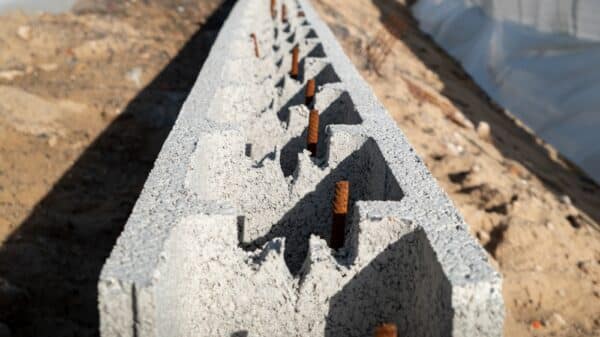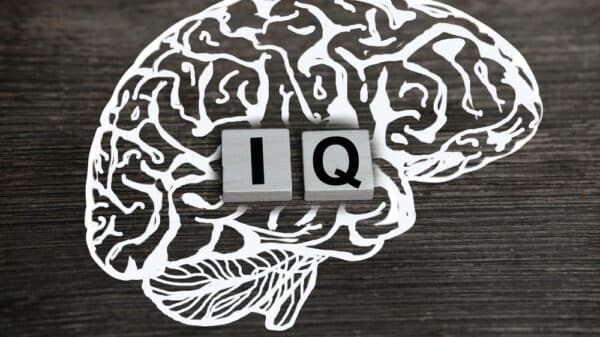Excessive salt consumption can have detrimental effects on your kidneys. Although salt enhances the taste of food, it provides no inherent health benefits and can create difficulties for the kidneys in eliminating excess water from the body.
As per The U.S. Department of Agriculture, the average individual should limit their daily salt intake to one teaspoon, approximately equivalent to 2,300 milligrams. Keep an eye on the sodium levels in pre-packaged and processed foods, as they may already contain substantial salt content.
Monitor Your Stress Levels
Stress has been linked to various adverse health outcomes, such as heightened blood pressure, decreased digestive function, and a compromised immune system. Persistent stress can result in impaired judgement, disturbed sleep, and unhealthy dietary patterns, ultimately affecting your overall well-being and potentially straining your kidneys.
Unmanaged stress can contribute to kidney impairment through elevated blood pressure. Effectively managing stress is crucial for preserving kidney health and overall health.
Take it Easy Initially with Physical Activity
When starting a new exercise regimen, it’s vital not to overexert yourself, especially if your body is not accustomed to the activity. Excessive exertion during physical workouts can trigger Rhabdomyolysis, a condition characterized by muscle breakdown that can stress the kidneys and potentially result in kidney failure.
Give your body sufficient time to adjust to the new physical routine to minimize the risk of Rhabdomyolysis and kidney strain.
Avoid Exposure to Secondhand Smoke
Being around secondhand smoke can significantly heighten the chances of developing heart disease and lung cancer, even for non-smokers. The Centers for Disease Control and Prevention underline that there is no safe threshold for exposure to secondhand smoke, underscoring the importance of steering clear of environments where smoking is prevalent.
Exposure to secondhand smoke can have adverse impacts on overall health, including kidney function. Taking steps to reduce exposure to secondhand smoke is crucial for safeguarding your kidneys and mitigating the risk of kidney issues.
Prioritize Rest When Unwell
Addressing illnesses appropriately and avoiding unnecessary contact with bacteria and viruses are essential for protecting kidney health. It is advisable to rest and allow your body to recuperate when under the weather, as pushing yourself through sickness can prolong recovery time and potentially affect kidney function.
Resting and giving your body time to recuperate from illness can help minimize the impact on kidney function and overall health.
Enhance Kidney Function by Focusing on Mental Health
Persistent stress and elevated stress levels can have adverse effects on kidney health. Effectively managing stress through practices like meditation and embracing a balanced lifestyle can contribute to improved kidney function and overall well-being.
Incorporating positive habits and stress management techniques can promote kidney health and overall well-being.
Avoid Smoking Cigarettes
Smoking cigarettes carries a multitude of negative health consequences, including potential harm to kidney function. It is advisable to refrain from smoking and reduce exposure to secondhand smoke to protect your kidneys and overall health.
Choosing a smoke-free environment and steering clear of cigarette smoke can aid in preserving kidney health and overall well-being.
The desire to smoke can be challenging to overcome despite the associated health risks and high cost. However, support groups are available to assist in your journey to quit. For current smokers, perseverance is key because it’s never too late to kick the habit.
Avoid Excessive Coffee Consumption
Consuming coffee in moderation is generally acceptable. However, surpassing three or four cups per day, depending on your body size, can elevate blood pressure, cause irregular heartbeats, induce stress, and lead to heartburn, all of which can contribute to kidney damage. Dr. Jessica Saville from the National Kidney Foundation recommends limiting coffee intake to three cups per day.
Improve Health by Decreasing Sedentary Time
Extended periods of sitting heighten the risk of heart disease, diabetes, and cancer in adults. Studies have shown that reducing sitting time by just one hour daily decreases the risk of heart disease by 26%. While short sitting intervals are acceptable, it is crucial to stand up and move around frequently. Try not to sit for more than an hour without taking a brief two-minute stretch break.
Health Benefits of a Daily Drink
Moderate alcohol consumption, especially red wine, has been associated with enhanced heart health and blood pressure regulation in various studies. Drinking approximately one alcoholic drink per day, equivalent to 12 ounces of beer or five ounces of wine, may promote a healthy heart and reduce the risk of heart disease.
Consistent Medication Regimen is Essential
Abruptly discontinuing or inconsistently taking medication can exert a significant burden on the kidneys, potentially leading to instability and stress. Maintaining a regular medication routine is essential to minimize stress on the kidneys and maximize the therapeutic benefits of the medication.
Monitor Your Blood Pressure Regularly
High blood pressure ranks as the second primary cause of kidney impairment and failure. Regular blood pressure assessments, recommended at least once every two years, are crucial for safeguarding kidney health and overall well-being. Setting an annual reminder to check your blood pressure is a beneficial habit.
Protect Against Stroke by Maintaining Oral Hygiene
Maintaining clean and healthy teeth correlates with a reduced risk of heart disease and stroke. Gum ailments can cause bacterial infections and inflammation, resulting in constricted arteries and escalating the risk of stroke. Brushing your teeth at least twice daily and flossing contribute to a healthier heart and kidneys.
Beware of the Dangers of E-Cigarettes
E-cigarettes and vape products, often viewed as alternatives to traditional smoking, carry their own array of health risks. Ongoing studies are assessing the long-term consequences of e-cigarette usage. Current research indicates a connection between e-cigarettes and illnesses. Several states have begun prohibiting these devices due to escalating concerns regarding reported lung ailments and fatalities across the United States.
Processed foods are packed with high sodium levels surpassing the recommended daily intake, leading to potential kidney damage. Moreover, excessive consumption of potassium and phosphorus from processed foods imposes strain on the kidneys, leading to complications.
Alcohol consumption should be moderate as excessive drinking can stress the kidneys significantly. Nonetheless, moderate alcohol consumption has shown to lower the risk of kidney dysfunction.
Extended screen time has been associated with an elevated risk of heart disease. Engaging in regular physical activity while limiting screen exposure can help mitigate this risk.
Regular use of heartburn medication has been linked to a 26% increase in chronic kidney disease. Opting for heartburn medications that do not compromise kidney health, such as H2 Blockers, is recommended.
Shellfish,Particularly those with domoic acid content have been associated with an escalated likelihood of kidney issues. It is recommended to consume seafood moderately to mitigate potential harm to the kidneys.
Excessive intake of saturated fat, especially LDL cholesterol, can obstruct arteries and negatively impact kidney function. While small quantities of butter are acceptable occasionally, it is advisable to avoid large amounts to safeguard kidney health. Margarine is a good alternative, offering a similar taste profile with minimal trans fat or “hydrogenated” fats, both of which elevate LDL cholesterol levels significantly.
Most adults do not meet the suggested daily sleep duration of seven to eight hours, resulting in chronic sleep deprivation and correlating with a 19% increase in kidney failure, as per a 2016 study by the University of Chicago. The research linked sleeping for 6.5 hours nightly to a higher risk of kidney failure due to continuous strain on the kidneys without adequate rest. Poor dietary choices at the end of the day, caused by fatigue and lack of energy, could also contribute to this risk.
Routine physical activity has proven to support kidney health by reducing blood pressure, enhancing sleep quality, and improving muscle function, according to findings from The National Kidney Foundation. A study in 2019 demonstrated a marked improvement in kidney disease patients’ health through just 150 minutes of moderate exercise per week.
Maintaining a vibrant social life is linked to enhanced kidney health. However, excessive drinking in social settings may counteract these potential benefits.
Prolonged retention of urine can lead to the accumulation of waste and bacteria in the body, posing a threat to kidney health. It is crucial to promptly respond to the body’s urge to urinate.
Engaging in daily physical activity for just fifteen minutes can increase lifespan by more than three years compared to those who are entirely inactive, as stated by Dr. Harvey Simon, an associate professor at Massachusetts General Hospital.
Energy drinks, rich in sugar and caffeine, have shown associations with high blood pressure, stress, and kidney issues. Despite repeated calls from researchers, there is a lack of regulation by the Food and Drug Administration to address the potential harm posed by these beverages.
Consuming healthy fats such as monounsaturated and polyunsaturated fats can lower the risk of heart disease, bolster immunity against illnesses, while unhealthy fats like trans fats and saturated fats contribute to elevated LDL cholesterol and arterial blockage.
Some nutrient-rich foods high in healthy fats include olive oil, chia seeds, dark chocolate, flaxseeds, nuts, and seed butter. Remember to avoid trans fats for better health; opting for a vegan diet can help eliminate natural trans fats, although some processed vegan products may contain artificial trans fats instead.
A Small Daily Portion of Fruits and Vegetables Goes a Long Way
An array of fruits and vegetables provide protection against various health conditions, including heart disease and cancer. Additionally, these foods aid in preventing kidney damage and support the healing of kidney disease. Beneficial foods for kidney health include apples, blueberries, kale, strawberries, spinach, sweet potatoes, red bell peppers, cauliflower, and cabbage. These foods also assist in reducing cholesterol levels, subsequently lowering the risk of kidney disease and offering direct protection against such illnesses.
A meta-analysis conducted in 2017 by the International Journal of Epidemiology highlighted that consuming merely five servings of fruits and vegetables daily helps mitigate the risk of heart disease, with further risk reduction by increasing intake to ten servings.
Be Careful of Artificial Sweeteners
In a society where a large portion of the population is overweight or obese, the popularity of “diet” and “zero sugar” variants of popular beverages like Coca-Cola and Pepsi has soared. Substituting regular sugar with artificial sweeteners such as sucralose, saccharin, and tagatose, despite their low-caloric content, has been associated with various adverse health conditions.
It is generally advised to limit consumption to one or two artificially sweetened drinks per day, but this guideline still presents challenges. With artificial sweeteners being relatively new, the lack of substantial data on their long-term health effects necessitates caution. Given the absence of an official verdict on the safety of artificial sweeteners, it’s safer to steer clear of them if possible.
Avoid Excessive Sugar Consumption
Overindulgence in sugar can lead to imbalanced energy levels, mood swings, decreased cognitive function, weight gain, disrupted sleep, and elevated blood sugar levels. The American Diabetes Association notes that high blood sugar levels strain the kidneys, potentially leading to kidney diseases over time.
Researchers from the University of Montreal have established a direct correlation among sugar, diabetes, and kidney diseases. Excessive sugar consumption often triggers diabetes, which, in turn, contributes to kidney issues, creating a detrimental cycle. Monitoring blood glucose levels regularly, avoiding excessive sugar intake, and learning about the impact of artificial sweeteners and alcohol on kidney health can help prevent these problems.
Adopt the Habit of Staying Hydrated
Chronic dehydration significantly heightens the risk of kidney failure, as per a report by the National Hydration Council. Most kidney stones are a consequence of chronic dehydration, where mineral buildup in the urine can solidify into kidney stones. To prevent this, it is essential to maintain adequate fluid intake, as it is easier to become dehydrated than to suffer adverse effects from overhydration.
Watch Out With Those Pain Killers
Pain medications should only be used when necessary, as excessive reliance on them can impair kidney function by reducing blood flow to the organs. The New England Journal of Medicine uncovered a worrisome trend, associating heavy usage of painkillers like Advil and Tylenol with over 5,000 cases of kidney failure annually in the United States. To mitigate risks, painkillers should never be taken on an empty stomach.
Stand Up Whenever You Can, Especially If You Work a Desk Job
Spending prolonged periods sitting, exceeding six hours a day, raises the risk of premature mortality within 15 years by 40% compared to those who sit for less than three hours daily. This is particularly vital for individuals with desk jobs, as per a recent PLoS One study linking extended periods of non-sedentary activity with a noticeable reduction in kidney failure risk.
Extended sitting has been linked to higher incidence rates of kidney diseases, attributed to decreased blood pressure and elevated glucose and cholesterol levels, which directly contribute to an increased risk of kidney failure.
More Benefits of Sleeping Eight Hours a Day
Research conducted over ten years in 2014 highlighted that consistent adherence to an eight-hour sleep schedule is one of the most pivotal routines for maintaining optimal health.Sleeping adequately is crucial for maintaining healthy hearts. This practice was highlighted in the European Journal of Preventive Cardiology as a fundamental aspect of heart health, closely linked to kidney function.
Deep sleep, according to the National Sleep Foundation, triggers brain chemicals that can reduce heart rate and blood pressure, ultimately promoting better kidney performance. Insufficient sleep, on the other hand, can increase the risk of heart attacks and heart diseases by over 50%. Ensuring a minimum of seven hours of sleep each night is imperative.
Determine Your Ideal BMI and Stick with it
Doctors unanimously agree that there exists a direct association between weight gain and heart issues. A study published in JAMA Cardiology in 2018 revealed that maintaining a high Body Mass Index (BMI) significantly escalates the likelihood of heart disease.
Sustaining an optimal BMI level is crucial, although the BMI metric may not be universally applicable due to differing body structures. Dr. Chanté Wiegand, ND, a Naturopathic Doctor and Director of Education at The Synergy Company, stresses the absence of a one-size-fits-all solution. Learn more about the impact of toothbrushing and e-cigarettes on kidney health next.
An Asymptomatic Affliction
One common error made by seemingly fit individuals is assuming that feeling healthy obviates the necessity of regular medical check-ups. The American Heart Association advises undergoing an annual blood pressure check, testing blood glucose levels every three years, and monitoring cholesterol levels every four to six years.
Taking preemptive measures to safeguard good health in advance is essential. Many medical conditions can be easily managed and prevented if detected early, rendering them much more challenging to treat once they have advanced and intensified.
Avoid Coca-Cola and Pepsi
Despite the well-known high sugar content in these beverages, it’s crucial to recognize that excessive sugar intake can result in various issues, such as heart and kidney complications.
Consuming two or more bottles of these sodas daily can double the likelihood of developing kidney disease. Moreover, these drinks contain phosphoric acid, which could potentially harm the kidneys, in addition to the sugar levels.
Image Source: Unsplash






























